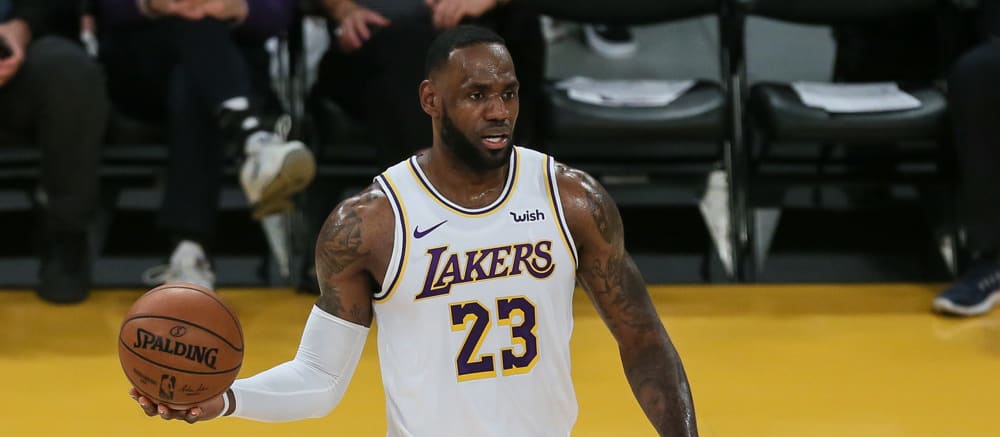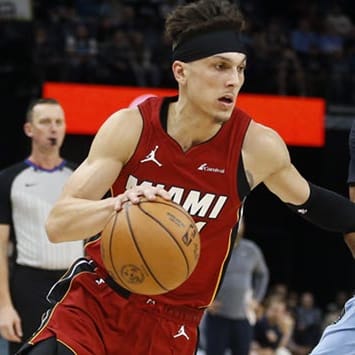This article is part of our NBA Draft Kit series.
Tiering is one of the most popular ways to prepare for a Fantasy basketball draft. Within each position group, separating players into tiers is an effective means of projecting general value and keeping organized during your draft. If you're in a position where you need to make a quick decision, consulting a set of tiers can help settle the debate between two players who are relatively close in value.
Entering the 2021-22 season, the NBA's talent pool is once again incredibly deep, so going into your drafts with a plan is more imperative than ever. Early on, drafting the top talents should be the priority, but as the draft progresses, it's important to be cognizant of which positions you're stocking up on and which you'll need to target in the mid-to-late rounds. Tiers can help achieve the roster balance most fantasy managers are hoping to come away with.
Here are our point guard tiers, which can serve as a general guide for those playing in standard leagues.
Tiers assume eight-category settings. Each player only appears in one set of tiers. Players are assigned to the position at which they're likely to play the most.
TIER 1
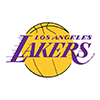 LeBron James, Lakers
LeBron James, Lakers
While James has been an ironman for the vast majority of his career, two of his last three seasons have been cut short by costly injuries. When healthy, his numbers have been as strong and well-rounded as ever, but as he heads into his
Tiering is one of the most popular ways to prepare for a Fantasy basketball draft. Within each position group, separating players into tiers is an effective means of projecting general value and keeping organized during your draft. If you're in a position where you need to make a quick decision, consulting a set of tiers can help settle the debate between two players who are relatively close in value.
Entering the 2021-22 season, the NBA's talent pool is once again incredibly deep, so going into your drafts with a plan is more imperative than ever. Early on, drafting the top talents should be the priority, but as the draft progresses, it's important to be cognizant of which positions you're stocking up on and which you'll need to target in the mid-to-late rounds. Tiers can help achieve the roster balance most fantasy managers are hoping to come away with.
Here are our point guard tiers, which can serve as a general guide for those playing in standard leagues.
Tiers assume eight-category settings. Each player only appears in one set of tiers. Players are assigned to the position at which they're likely to play the most.
TIER 1
 LeBron James, Lakers
LeBron James, Lakers
While James has been an ironman for the vast majority of his career, two of his last three seasons have been cut short by costly injuries. When healthy, his numbers have been as strong and well-rounded as ever, but as he heads into his age-37 season, he carries a bit more risk than in years past. Still, at his best, James is the best small forward in fantasy basketball. He's become a liability at the free throw line, but James is a walking 25-7-7 who adds at least 1.0 steal and 2.0 threes per game while maintaining a strong field goal percentage.
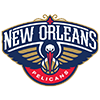 Brandon Ingram, Pelicans
Brandon Ingram, Pelicans
Ingram took a major step forward in 2019-20 and essentially replicated that season a year ago, putting up 23.8 points, 4.9 rebounds, 4.9 assists and 1.3 combined steals/blocks with a 47-38-88 shooting line. It's unclear if Ingram can raise his game to another level, but he'll be in an advantageous fantasy situation as the 1B to Zion Williamson's 1A in New Orleans. If Ingram can move closer to 1.0 steal and 1.0 block per game, he could push for the best fantasy finish of his career.
TIER 2
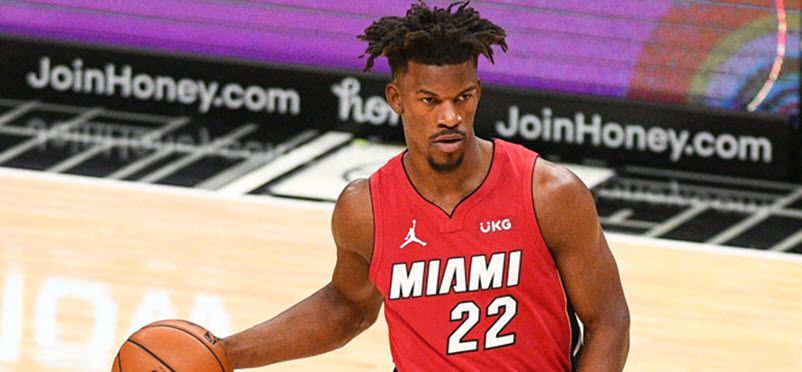
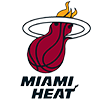 Jimmy Butler, Heat
Jimmy Butler, Heat
One of the most consistent players at his position, Butler turned in another fantastic season in 2020-21, posting 21.5 points, 6.9 rebounds (career high), 7.1 assists (career high) and 2.1 steals (career high) per game. He also hit a career-best 49.7 percent of his field goal attempts while draining 86.3 percent of his free throws. The glaring hole in Butler's fantasy profile is his near-complete lack of three-point shooting, but he makes up for it with his percentages -- especially considering that he's attempted 9.1 and 8.0 free throws per game over the last two seasons, respectively. The other caveat with Butler is his propensity to miss games. The soon-to-be-32-year-old has sat out at least 15 contests in six of the last eight seasons and has topped 70 games just twice in his career.
 Michael Porter, Nuggets
Michael Porter, Nuggets
Last season already qualifies as a breakout for Porter, but with Jamal Murray set to miss much of the 2021-22 campaign, he'll have an opportunity to take his game to another level. Already a hyper-efficient scorer who rebounds well and drains nearly three three-pointers per game, Porter will begin the year as the clear No. 2 option behind reigning MVP Nikola Jokic. The possibility of lingering back issues should still be something fantasy managers take into consideration, but Porter's upside is high enough that he's worth the risk.
TIER 3
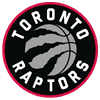 OG Anunoby, Raptors
OG Anunoby, Raptors
Heading into his fifth NBA season, Anunoby continues to make incremental improvement on a year-to-year basis. He posted career highs nearly across the board last season and continues to establish himself as a borderline-elite three-point shooter on increasingly high volume. Anunoby doesn't have the same scoring upside as other players in this tier, but he's an excellent source of defensive stats who could push for a 50-40-80 shooting line.
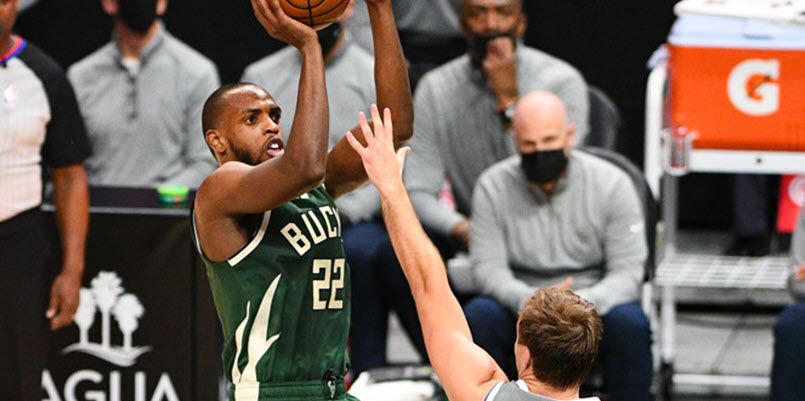
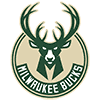 Khris Middleton, Bucks
Khris Middleton, Bucks
Over the last four seasons, Middleton has built a case as perhaps the most consistent forward in all of fantasy basketball. While there are plenty of players with higher ceilings, Middleton's floor provides ultra-valuable insurance for fantasy managers who take risks with their first couple of picks. Coming off of another year in which he sniffed the 50-40-90 club, Middleton will once again reprise his role as the Bucks' No. 2 option behind Giannis Antetokounmpo. After a run to the Finals and a gold medal with Team USA, Middleton put a lot of mileage on his body this summer, but he can safely be penciled in for another 20-6-5-1 season with elite percentages.
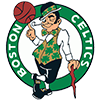 Jaylen Brown, Celtics
Jaylen Brown, Celtics
A contender for the Most Improved Player award last season, Brown notched career highs in points (24.7 PPG), assists (3.4 APG), steals (1.2 SPG), threes (2.8 3PM/G), field goal percentage (48.4%), free throw percentage (76.4%) and three-point percentage (39.7%). There's a chance Brown doesn't have too much higher to climb, but if he can just replicate last year's production, fantasy managers will be more than satisfied. The arrival of Dennis Schroder adds some playmaking, but if Brown is able to again boost his assists production, he could move closer to the bottom of Tier 2.
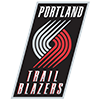 Robert Covington, Trail Blazers
Robert Covington, Trail Blazers
Covington has bounced around between four teams over the last three seasons, but he's maintained his reputation as one of the NBA's premier three-and-D forwards. While his scoring dropped to just 8.5 points per game a season ago, Covington still added 6.7 rebounds, 1.4 steals, 1.2 blocks and 1.9 threes while shooting 37.9 percent from deep. Obviously, the defensive stats are what truly drive Covington's fantasy value. He'll enter 2021-22 having averaged at least 1.4 steals and 1.0 block in four of the last five seasons while hitting at least 1.9 threes per game in seven straight.
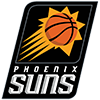 Mikal Bridges, Suns
Mikal Bridges, Suns
Entering his fourth NBA season, Bridges has essentially followed in the footsteps of Robert Covington as an up-and-coming two-way stud. The Villanova product is a bit more advanced on the offensive end, which led to a career-high 13.5 points per game on elite shooting splits (54-43-84) last season. Bridges also chipped in 4.3 rebounds, 2.1 assists, 1.1 steals and 0.9 blocks while draining 1.9 threes per contest. With Phoenix bringing back essentially the same team as last year's Finals runner-up, expect Bridges to play a similar role.
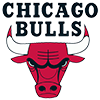 DeMar DeRozan, Bulls
DeMar DeRozan, Bulls
After a three-year sojourn in San Antonio, DeRozan heads north to team up with Zach LaVine, Nikola Vucevic and Lonzo Ball in Chicago. Chances are, all four players take a slight step back, fantasy-wise, but DeRozan's combination of scoring, playmaking, rebounding and elite free throw shooting provide him with a high floor. However, like Jimmy Butler, DeRozan adds almost no value in three-pointers, as he's hit just 35 total over the last three seasons.
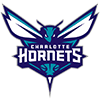 Gordon Hayward, Hornets
Gordon Hayward, Hornets
Hayward rarely missed any games during his first seven NBA seasons in Utah, but injuries have been an unfortunate part of his story since leaving for Boston in 2017. Once again, Hayward missed significant time in 2020-21, but when he was on the court he looked more like the borderline-All-NBA player from his pre-Celtics days. With Terry Rozier and Miles Bridges taking big steps forward, LaMelo Ball looking like a potential superstar and Kelly Oubre joining the roster in free agency, Hayward may not be asked to do quite as much this season, but he'll be an attractive option for fantasy managers in the upper-middle rounds. If he can stay healthy, Hayward could easily push for top-50 value.
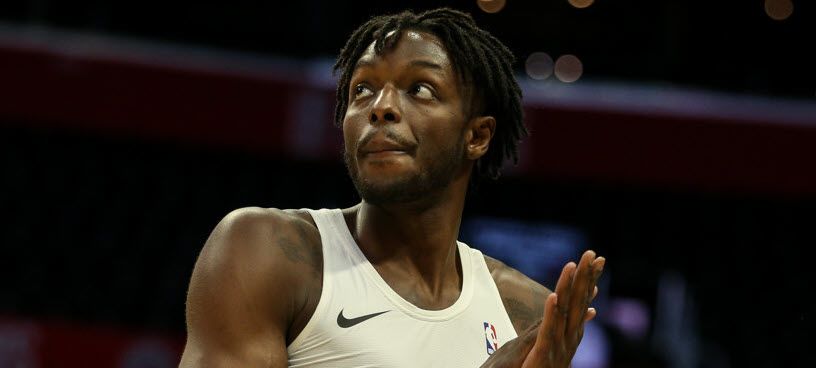
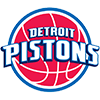 Jerami Grant, Pistons
Jerami Grant, Pistons
After coming over from Denver in free agency, Grant got off to a red-hot start and looked every bit the part of a player ready to make the leap from great role player to borderline-All-Star. As the season wore on -- and Pistons' destiny became more and more clear -- Grant's production gradually waned, but he still shattered his career highs in a number of key categories, including points, assists, threes and free throw percentage. With Cade Cunningham entering the mix as the clear future of the franchise in Detroit, Grant's role is now a bit more clouded. But even if Cunningham takes over as the primary ball-handler, Grant should be able to flourish as the No. 2 option -- a role he's probably better-suited for, anyway.
TIER 4
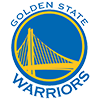 Andrew Wiggins, Warriors
Andrew Wiggins, Warriors
No one is claiming Wiggins is the most fun player to manage in fantasy, but he's quietly grown into an effective player to draft in the later-middle rounds. Wiggins finished 89th in per-game value last season (8-cat), but he jumped into the top 50 in total value, thanks to missing just one regular season game. With Klay Thompson set to return in December and the Warriors adding Otto Porter and Nemanja Bjelica -- plus a pair of lottery-pick wings -- there's a chance Wiggins takes a slight step back. But with Golden State pushing for a return to title contention, the former No. 1 pick should continue to serve as a solid secondary scoring option who adds three-pointers (2.0 per game last season) and is an under-the-radar source of blocks and steals (1.9 combined last season; 1.8 combined in 2019-20).
 Norman Powell, Trail Blazers
Norman Powell, Trail Blazers
After his first four NBA seasons, Powell's ultimate path was unclear, but he's developed into an excellent, high-floor option on the wing over the last two seasons. Powell doesn't offer much outside of points and steals, but his percentages are a major plus -- especially for a player who attempted a career-high 6.0 threes per game last season (41.1% 3PT). After signing a lucrative extension in the offseason, Powell should be in line to reprise his role as a high-minute catch-and-shoot threat next to Damian Lillard and CJ McCollum.
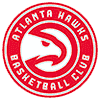 De'Andre Hunter, Hawks
De'Andre Hunter, Hawks
A knee injury derailed a potential breakout sophomore campaign from Hunter, who averaged 17.9 points (on elite percentages), 5.6 rebounds, 2.3 assists, 0.9 steals and 1.8 threes through his first 17 games. After undergoing a second procedure on the knee in June, the hope is that Hunter can hit the ground running in training camp, but he does carry some injury risk. Hunter will start on the wing, but he's also dealing with a crowded depth chart the features Kevin Huerter, Cam Reddish, Danilo Gallinari, John Collins, Solomon Hill and rookie Jalen Johnson, who will all vie for consistent minutes, to varying degrees.
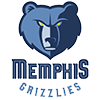 Kyle Anderson, Grizzlies
Kyle Anderson, Grizzlies
After a down 2019-20 season, Anderson bounced back in a big way with career highs in points (12.4 PPG), assists (3.6 APG) and threes (1.4 3PM/G) per game last season. He doesn't have a high ceiling, but Anderson's ability to contribute in virtually every category should keep him in the mix for a top-90 finish again this season. Historically, free throw shooting has been Anderson's biggest liability, but he hiked his percentage up to 78.3 percent last season after shooting 66.7 and 57.8 percent, respectively, over the previous two campaigns.

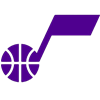 Bojan Bogdanovic, Jazz
Bojan Bogdanovic, Jazz
Coming off of his third straight season averaging at least 17.0 points, 3.9 rebounds, 1.9 assists and 2.0 threes, fantasy managers know what to expect from Bogdanovic. His overall efficiency has waned a bit in recent years, but Bogdanovic remains a 40-percent three-point shooter who's among the league's best marksmen at the charity stripe.
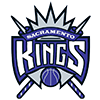 Harrison Barnes, Kings
Harrison Barnes, Kings
The nine-year veteran is like an even more boring version of Khris Middleton or Andrew Wiggins. There's nothing exciting about Barnes' game, but he's a steady points-rebounds contributor who shoots efficiently and is good for at least 1.5 three-pointers per game. Whether he can maintain last season's jump in assists (career-high 3.5 per game) will ultimately determine his fantasy upside.
 Kawhi Leonard, Clippers
Kawhi Leonard, Clippers
Even when healthy, just how many games Leonard will play is always a major question. And given that he underwent surgery in July to repair a partially torn ACL, he's one of the most difficult players to project this season. If Leonard can play even 20 games and look mostly like his regular, All-NBA self, he'll have a chance to be a massive impact player at a key point in the season for fantasy managers. But it's Kawhi Leonard who we're dealing with, so would it be all that surprising if he misses the entire regular season? At some point, the upside becomes worth the risk, but any fantasy manager investing in Leonard should make sure there's a long-term IR spot available.
 Miles Bridges, Hornets
Miles Bridges, Hornets
Stepping up in the absence of Gordon Hayward late in the season, Bridges finished the year scoring in double figures in 21 consecutive games. In that span, he averaged 19.9 points, 6.8 rebounds, 2.9 assists, 1.0 block, 0.8 steals and 3.0 three-pointers per game. A healthy Hayward, plus the addition of Kelly Oubre, will certainly cut into Bridges' workload, but he showed enough last season to command a larger role. Still, there's enough of a logjam at forward to stifle some of the excitement as drafts approach.
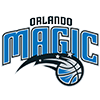 Jonathan Isaac, Magic
Jonathan Isaac, Magic
Save for the 2018-19 season, in which he appeared in 75 games, Isaac has been a massive injury liability. He played in only 27 games as a rookie and appeared in just 34 games in 2019-20 before going down with a torn ACL and meniscus that sidelined him for the entirety of 2020-21. When available, Isaac is a unique fantasy asset who's among the best defensive contributors in the entire league, but until he proves he can stay even relatively healthy, he simply has to be discounted on draft night.
TIER 5
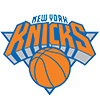 RJ Barrett, Knicks
RJ Barrett, Knicks
The No. 3 pick in 2019 is coming off of a good-not-great sophomore campaign, but he demonstrated improvement in two key areas: three-point shooting and free throw shooting. As a rookie, Barrett hit just 61.4 percent of his free throws, but he raised that figure up to 74.6 percent last season. Similarly, he jumped form 32.1 to 40.1 percent from downtown, all while increasing his volume from 3.5 to 4.3 attempts per game. Barrett still needs to become a more effective defensive player to sniff top-100 value, but there's reason to believe he'll continue to progress as he gains experience. The biggest question is how much the Knicks bringing back virtually the entire roster -- plus the addition of Evan Fournier -- will impact Barrett's offensive workload.
 Saddiq Bey, Pistons
Saddiq Bey, Pistons
One of last season's breakout rookies, Bey played in 70 games and immediately established himself as an excellent, high-volume three-point shooter. The arrival of Cade Cunningham means things will be a bit different in Detroit this season, but Bey showed enough that it's hard to imagine him not starting at small forward on Opening Night.
 Kelly Oubre, Hornets
Kelly Oubre, Hornets
After a sluggish start to the season, Oubre bounced back and gradually restored his value to post 15.4 points, 6.0 rebounds, 1.3 assists, 1.0 steal, 0.8 blocks and 1.6 threes across 55 appearances -- good for 122nd overall in per-game value. Moving to Charlotte, Oubre will likely begin the season backing up Gordon Hayward and P.J. Washington at forward, but he'll also contend with Miles Bridges for minutes. Ultimately, Bridges vs. Oubre will be the battle to keep an eye on, though an injury to Hayward or Washington could open the door for both players.
 Royce O'Neale, Jazz
Royce O'Neale, Jazz
As a defense-first role player, O'Neale is not a traditional fantasy stud, but he very quietly returned top-90 value in eight-category leagues last season, thanks in large part to missing just one regular season game. O'Neale has only sat out two games in the last three seasons, which helps him offset relatively underwhelming counting stats. Still, O'Neale is a great rebounder for his size (6.8 RPG last season), and he's grown into a knockdown catch-and-shoot option from distance (1.5 3PM/G; 38.5% 3PT).
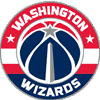 Kyle Kuzma, Wizards
Kyle Kuzma, Wizards
Kuzma found new ways to underwhelm last season in Los Angeles, and a disastrous showing in Round 1 against the Suns was the last straw for LeBron James and the Lakers front office, which was happy to include the 26-year-old in the Russell Westbrook trade. To his credit, Kuzma showed some signs of progress during the regular season, including shooting 36.1 percent from three after toiling in the low-30s in the previous two seasons. But the move to Washington brings a much-needed change of scenery, as well as the potential to compete for a full-time starting spot. Kuzma still has a ton to prove before fantasy managers will be willing to invest more than a late-round pick, but this season will be his best opportunity to establish himself since his breakout rookie campaign in 2017-18.
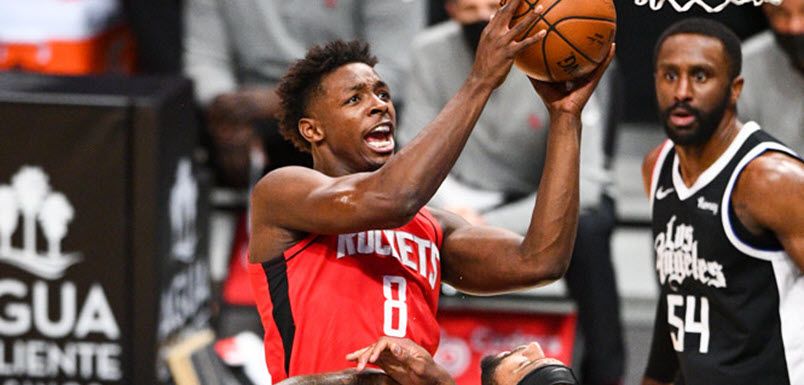
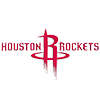 Jae'Sean Tate, Rockets
Jae'Sean Tate, Rockets
Tate came out of nowhere to finish 75th in total value (8-cat) as a rookie last season. He didn't dominate in any one category, but Tate played in 70 of a possible 72 games and averaged 11.3 points, 5.3 rebounds, 2.5 assists, 1.2 steals, 0.5 blocks and 0.9 threes per contest. Certainly, Tate was the beneficiary of injuries to teammates and a strict tanking mandate, so he may have trouble replicating last season's production. That's especially true with the arrival of No. 2 overall pick Jalen Green, as well as veteran Daniel Theis in free agency.
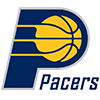 T.J. Warren, Pacers
T.J. Warren, Pacers
Injuries held Warren to just four appearances last season, stifling what looked like a mid-career mini-breakout following a strong showing in the NBA bubble. Warren should be healthy in time for Opening Night, but he returns to a Pacers roster that now features Caris LeVert, in addition to Malcolm Brogdon and Domantas Sabonis. There's a chance that could leave Warren as the No. 4 option, at times, so his upside heading into 2021-22 isn't as high as it may have been this time last year.
Next up: Terrence Ross, Talen Horton-Tucker, Dorian Finney-Smith, Aleksej Pokusevski, Isaac Okoro, Joe Ingles, Cam Reddish, Matisse Thybulle, Derrick Jones Jr.

